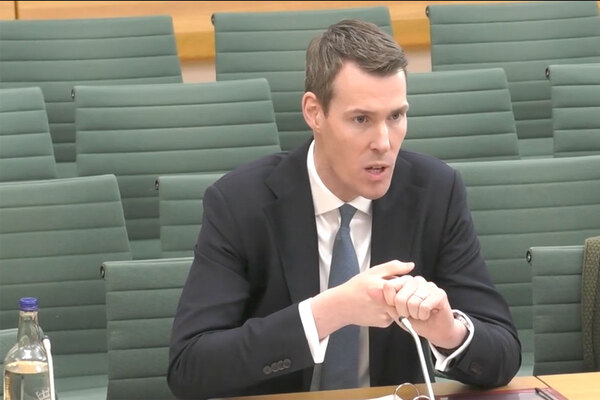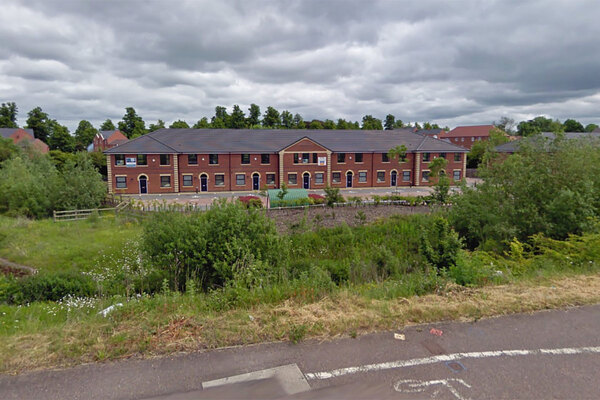Bedroom tax - a year of pain
Today is the first anniversary of the bedroom tax and Nicholas Harris believes currently it exists only to penalise the poor
April 1 is the first anniversary of the bedroom tax – a government policy which is unfair, unpopular and, as a stand-alone measure, unworkable.
The bedroom tax imposes an under occupancy charge on spare bedrooms for people living in social housing properties. Rather than help resolve the housing crisis by better matching housing requirement to housing provision, it has made the situation worse. Twelve months on, this policy, which was meant to reduce the taxpayer’s welfare bill by around £500 million in its first year, it could end up costing more than it is saving and doing a lot more damage than good.
In just 12 months, the bedroom tax has created terrible financial hardship and suffering among some of our most vulnerable people. Those affected are losing at least £14 a week, which for the poor and unemployed, can mean going without heating or food.
Mounting debt
New research from the National Housing Federation shows two out of three housing association residents are, as a result of the bedroom tax, in rent arrears, with more than a third reported to be in debt because they can no longer make their rental payments.
No social tenant should have to go into arrears and lose their home because the government has changed the housing rules and moved the goal posts. Besides, they have nothing to move into if they do want to downsize. Britain is facing its worst affordable housing shortage – particularly of one and two-bedroom properties –which is leading to increasing levels of homelessness.
For example, homeless charity Crisis, reported a record 22 per cent rise in the number of people seeking shelter at its UK centres at Christmas, the largest number since its project began in 1971. It has attributed the rise to a lack of affordable housing, cuts to housing benefit, high unemployment, low pay and high rents.
Unfair and unworkable
The inflexibility of the bedroom tax makes it unworkable. It’s a one-size-fits-all policy that fails to recognise or understand people’s unique housing needs or recognise that people often need an extra bedroom for valid reasons. They may need to accommodate carers, hospital beds and medical equipment, married couples may need separate bedrooms because of illness or for children visiting divorced parents.
The bedroom tax fails to take into account its social and psychological impact too. Communities are being split up because people are being forced to move away from their families, friends and support networks to find cheaper and smaller homes.
Implementing the bedroom tax has been hugely costly. With the shortage of smaller affordable homes, councils are having to house tenants in privately rented accommodation where rent is more expensive and they have to pay out more benefit to cover their rent than in a social housing tenancy. Figures from the Commons library show the amount of housing benefit paid to private landlords will rise from £7.9 billion to £9.4 billion – an extra £1.5 billion a year – due to rising rents and the bedroom tax. This money could have been better spent on building more affordable one and two-bedroom homes.
It seems ludicrous that a couple has to move from a three-bedroom Raglan home which they are renting for £575/month to a two bedroom private flat in Reading renting for £750-800. By moving into private rented accommodation they also lose their security of tenancy which ultimately, creates a more transient population which is forced to move frequently.
With the rising costs of living, local authority spending cuts, and changes to the wider welfare benefits system, councils and housing associations cannot afford to write-off rent. Arrears are mounting as people go into debt. And while we are all doing our best to avoid evicting residents, we will eventually have to take action.
For the time being, many local authorities have not spent their budgets so we have been encouraging our tenants affected by both bedroom tax and the benefit cap to apply for Discretionary Housing Payments (DHP). These DHPs have helped clear their arrears in the short term but the money is about to run out and will be cut from local authority budgets in the new financial year. They are nothing more than a bandage which will not stop people from going into rising debt.
We do need to tackle the national housing shortage and undoubtedly, the problem of under-occupancy needs to form part of the government’s strategy. However, bedroom tax cannot stand alone. It only works if it’s part of a wider strategy combining a number of different measures. As it currently stands, the bedroom tax only exits to penalise the poor.
If the government is serious about welfare reform, it must tackle the chronic shortage of affordable rental housing. We simply don’t have enough affordable housing accommodation for social tenants in this country and the bedroom tax only highlights and exacerbates this problem.
People don’t deserve to lose their homes or live in fear of becoming homeless because they have a spare room. Social housing was introduced to take the low paid and unemployed out of slum housing run by slum landlords into secure, long-term affordable and good quality accommodation. If the government wants to ‘right size’ social housing, it needs to give people enough time to prepare and plan for the transition so they don’t go into arrears. But before it can do this we need to have enough homes, of the right size, in the right places, which are affordable.
Nicholas Harris is the chief executive at Raglan Housing











